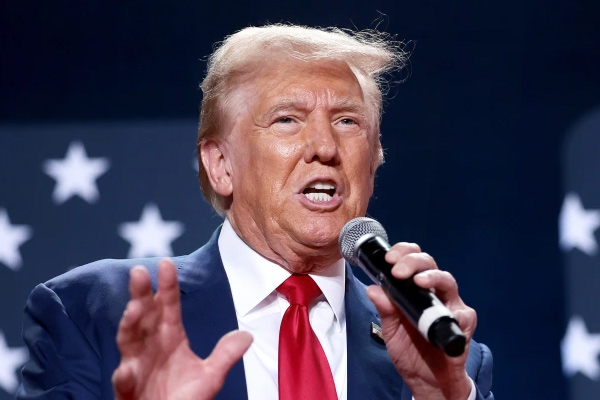
In a controversial move, U.S. President-elect Donald Trump has reiterated his suggestion to make Canada the 51st state following the resignation of Canadian Prime Minister Justin Trudeau. Trudeau, 53, announced his decision on Monday amid mounting internal pressure and declining popularity within the ruling Liberal Party. He will remain in office until a new leader is chosen, with general elections scheduled for later this year.
Trump, 78, has had a strained relationship with Trudeau dating back to his first presidential term from 2017 to 2021. He first proposed the idea of incorporating Canada as a U.S. state after meeting Trudeau at Mar-a-Lago following his November 5 electoral victory. Since then, he has repeatedly aired this suggestion on his social media platform, Truth Social.
“Many people in Canada LOVE being the 51st State,” Trump wrote on Monday, shortly after Trudeau’s resignation. “The United States can no longer suffer the massive Trade Deficits and Subsidies that Canada needs to stay afloat. Justin Trudeau knew this, and resigned.”
Trump further claimed that a U.S.-Canada merger would eliminate tariffs, significantly reduce taxes, and ensure Canada’s security against threats from Russian and Chinese ships. “Together, what a great Nation it would be!” he declared.
The president-elect’s proposal has been met with little public response from Canadian officials. However, Trump has also threatened to impose 25 percent tariffs on Canadian imports unless Toronto takes stronger action to curb illicit drug trafficking and illegal migration across the U.S.-Canada border.
Trump has consistently mocked Trudeau, labeling him Canada’s “governor” and suggesting that Canada should embrace U.S. statehood. He has also criticized Canada’s trade practices, accusing the country of exploiting the United States and failing to uphold fair trade agreements.
While Trudeau’s resignation has intensified political uncertainty in Canada, Trump’s renewed proposal for statehood is unlikely to gain traction among Canadians. The suggestion highlights longstanding tensions between the two leaders and raises questions about the future of U.S.-Canada relations under Trump’s presidency.
As Canada braces for its upcoming elections and leadership transition, the prospect of merging with the United States remains a provocative yet implausible idea, with many Canadians valuing their national sovereignty and independence.

